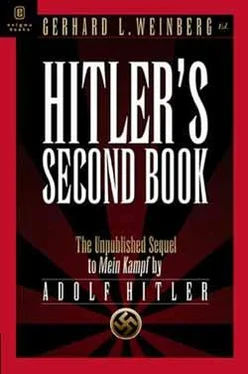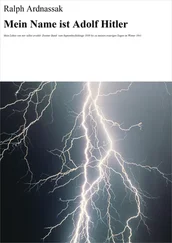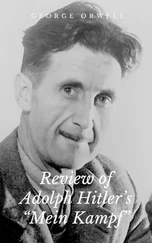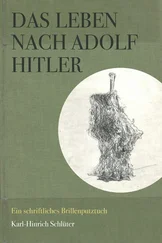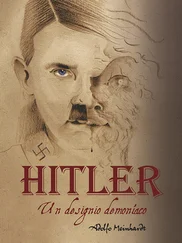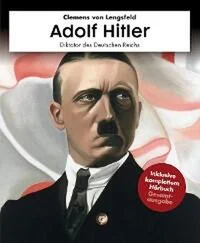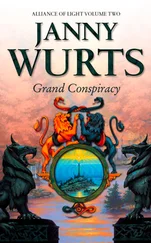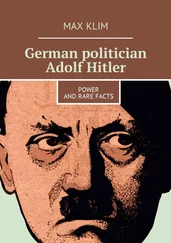Military leadership of all times has always been dominated by the idea of forming special legions, chosen elite troops for guard regiments and assault battalions. Persian palace guards, Alexandrian elite troops, Roman legions of Praetorians, lost troops of mercenaries, the guard regiments of Napoleon and Frederick The Great, the assault battalions, submarine crews and flying corps of the World War owed their origin to the same idea and necessity of seeking out of a great multitude of men, those with the highest aptitude for the performance of correspondingly high tasks, and bringing them together into special formations. For originally every guard was not a drill corps but a combat unit. The glory attached to membership in such a community led to the creation of a special esprit de corps which subsequently, however, could freeze and ultimately end up in sheer formalities.
Hence not seldom such formations will have to bear the greatest blood sacrifices; that is to say, the fittest are sought out from a great multitude of men and led to war in concentrated masses. Thus the percentage of the best dead of a nation is disproportionately increased, while conversely the percentage of the worst elements is able to preserve itself to the highest degree. Over against the extremely idealistic men who are ready to sacrifice their own lives for the Folkish Community, stands the number of those most wretched egoists who view the preservation of their own mere personal life likewise as the highest task of this life. The hero dies, the criminal is preserved. This appears self evident to an heroic age, and especially to an idealistic youth. And this is good, because it is the proof of the still present value of a Folk. The true statesman must view such a fact with concern, and take it into account. For what can easily be tolerated in one war, in a hundred wars leads to the slow bleeding away of the best, most valuable elements of a nation. Thereby victories will indeed have been won, but in the end there will no longer be a Folk worthy of this victory. And the pitifulness of the posterity, which to many seems incomprehensible, not seldom is the result of the successes of former times.
Therefore, wise political leaders of a Folk will never see in war the aim of the life of a Folk, but only a means for the preservation of this life. It must educate the human material entrusted to it to the highest manhood, but rule it with the highest conscientiousness. If necessary, when a Folk’s life is at stake, they should not shrink from daring to shed blood to the utmost, but they must always bear in mind that peace must one day again replace this blood. Wars which are fought for aims that, because of their whole nature, do not guarantee a compensation for the blood that has been shed, are sacrileges committed against a nation, a sin against a Folk’s future.
Eternal wars, however, can become a terrible danger among a Folk which possesses such unequal elements in its racial composition that only part of them may be viewed as Statepreserving, as such, and therefore, especially, creative culturally. The culture of European Folks rests on the foundations which its infusion of Nordic blood has created in the course of centuries. Once the last remains of this Nordic blood are eliminated, the face of European culture will be changed, the value of the States decreasing, however, in accordance with the sinking value of the Folks.
A policy which is fundamentally peaceful, on the other hand, would at first make possible the preservation of its best blood carriers, but on the whole it would educate the Folk to a weakness which, one day, must lead to failure, once the basis of existence of such a Folk appears to be threatened. Then, instead of fighting for daily bread, the nation rather will cut down on this bread and, what is even more probable, limit the number of people either through peaceful emigration or through birth control, in order in this way to escape an enormous distress.
Thus the fundamentally peaceful policy becomes a scourge for a Folk. For what, on the one hand, is effected by permanent war, is effected on the other by emigration. Through it a Folk is slowly robbed of its best blood in hundreds of thousands of individual life catastrophes. It is sad to know that our whole national political wisdom, insofar as it does not see any advantage at all in emigration, at most deplores the weakening of the number of its own people, or at best speaks of a cultural fertiliser which is thereby given to other States. What is not perceived is the worst. Since the emigration does not proceed according to territory, nor according to age categories, but instead remains subject to the free rule of fate, it always drains away from a Folk the most courageous and the boldest people, the most determined and most prepared for resistance. The peasant youth who emigrated to America 150 years ago was as much the most determined and most adventurous man in his village as the worker who today goes to Argentina. The coward and weakling would rather die at home than pluck up the courage to earn his bread in an unknown, foreign land. Regardless whether it is distress, misery, political pressure or religious compulsion that weighs on people, it will always be those who are the healthiest and the most capable of resistance who will be able to put up the most resistance. The weakling will always be the first to subject himself. His preservation is generally as little a gain for the victor as the stay at homes are for the mother country. Not seldom, therefore, the law of action is passed on from the mother country to the colonies, because there a concentration of the highest human values has taken place in a wholly natural way. However, the positive gain for the new country is thus a loss for the mother country. As soon as a Folk once loses its best, strongest and most natural forces through emigration in the course of centuries, it will hardly be able any more to muster the inner strength to put up the necessary resistance to fate in critical times. It will then sooner grasp at birth control. Even here the loss in numbers is not decisive, but the terrible fact that, through birth control, the highest potential values of a Folk are destroyed at the very outset. For the greatness and future of a Folk is determined through the sum of its capacities for the highest achievements in all fields. But these are personality values which do not appear linked to primogeniture. If we were to strike off from our German cultural life, from our science, indeed from our whole existence as such, all that which was created by men who were not first born sons, then Germany would hardly be a Balkan State. The German Folk would no longer have any claim to being valued as a cultural Folk. Moreover, it must be considered that, even in the case of those men who as first born nevertheless accomplished great things for their Folk, it must first be examined whether one of their ancestors at least had not been a first born. For when in his whole ancestral series the chain of the first born appears as broken just once [one man], then he also belongs to those who would not have existed had our forefathers always paid homage to this principle. In the life of nations, however, there are no vices of the past that are [would be] right in the present.
The fundamentally peaceful policy, with the subsequent bleeding to death of a nation through emigration and birth control, is likewise all the more catastrophic the more it involves a Folk which is made up of racially unequal elements. For in this case as well the best racial elements are taken away from the Folk through emigration, whereas through birth control in the homeland it is likewise those who in consequence of their racial value have worked themselves up to the higher levels of life and society who are at first affected.
Gradually then their replenishment would follow out of the bled, inferior broad masses, and finally, after centuries, lead to a lowering of the whole value of the Folk altogether. Such a nation will have long ceased to possess real life vitality.
Читать дальше
